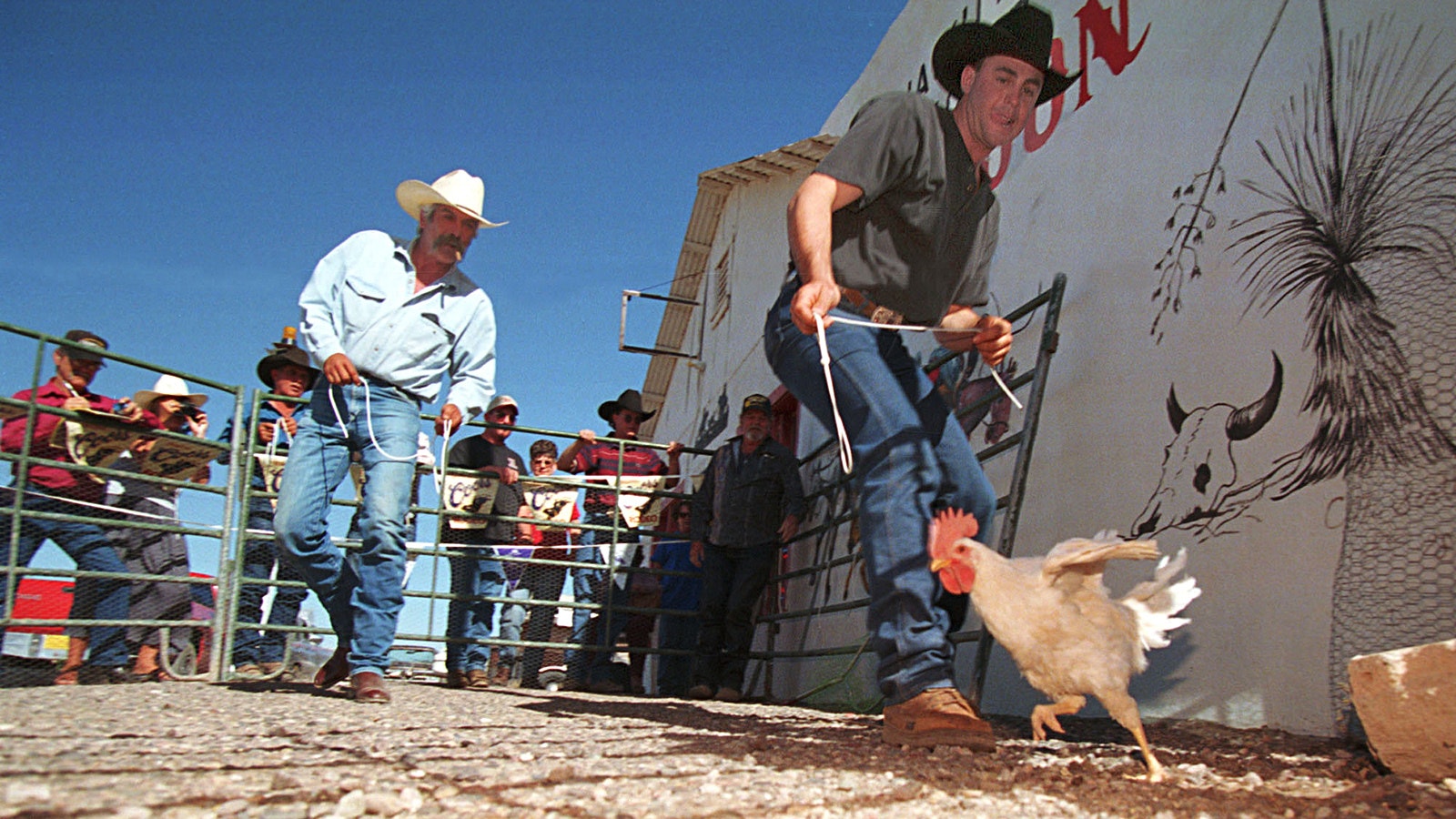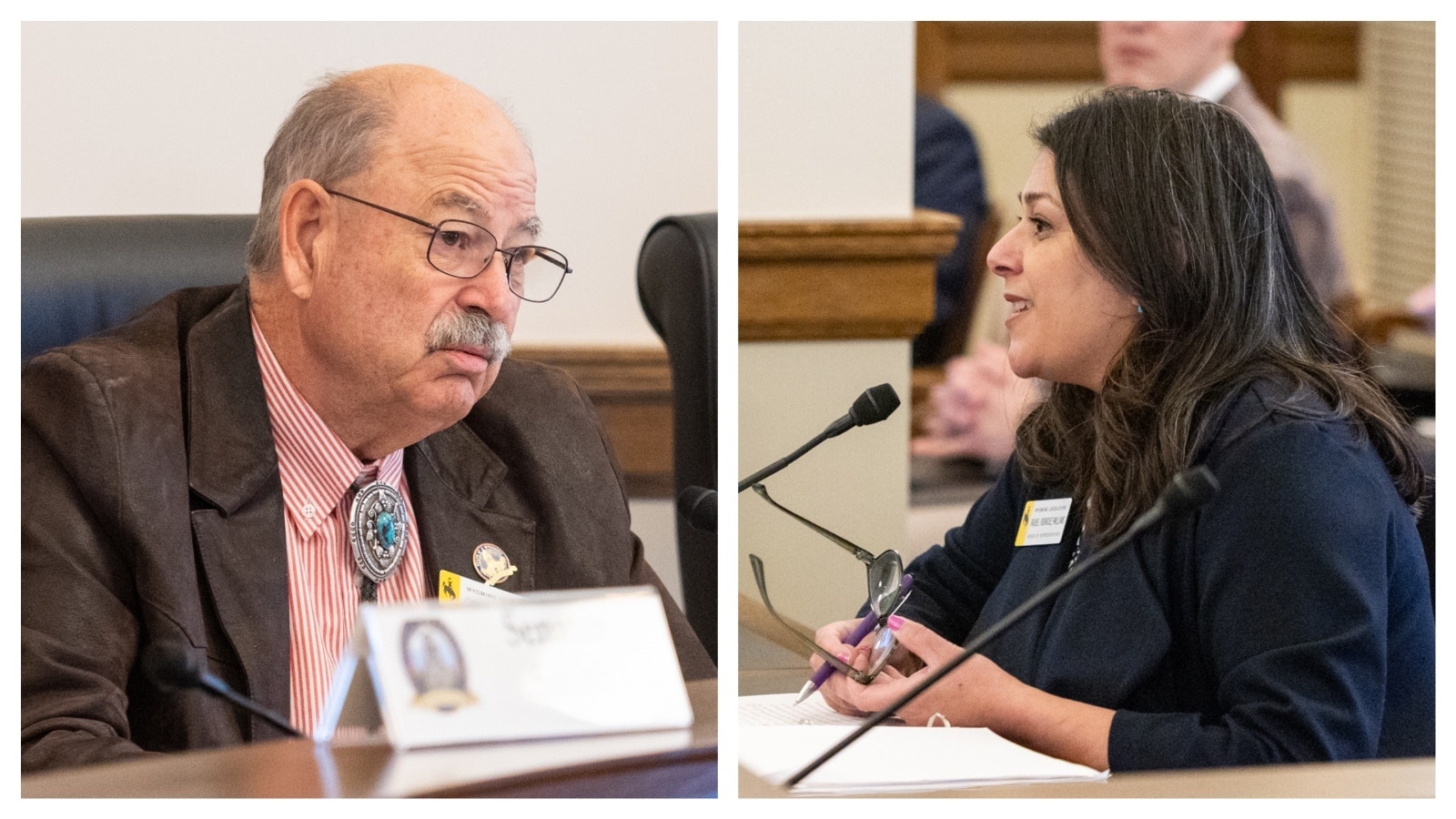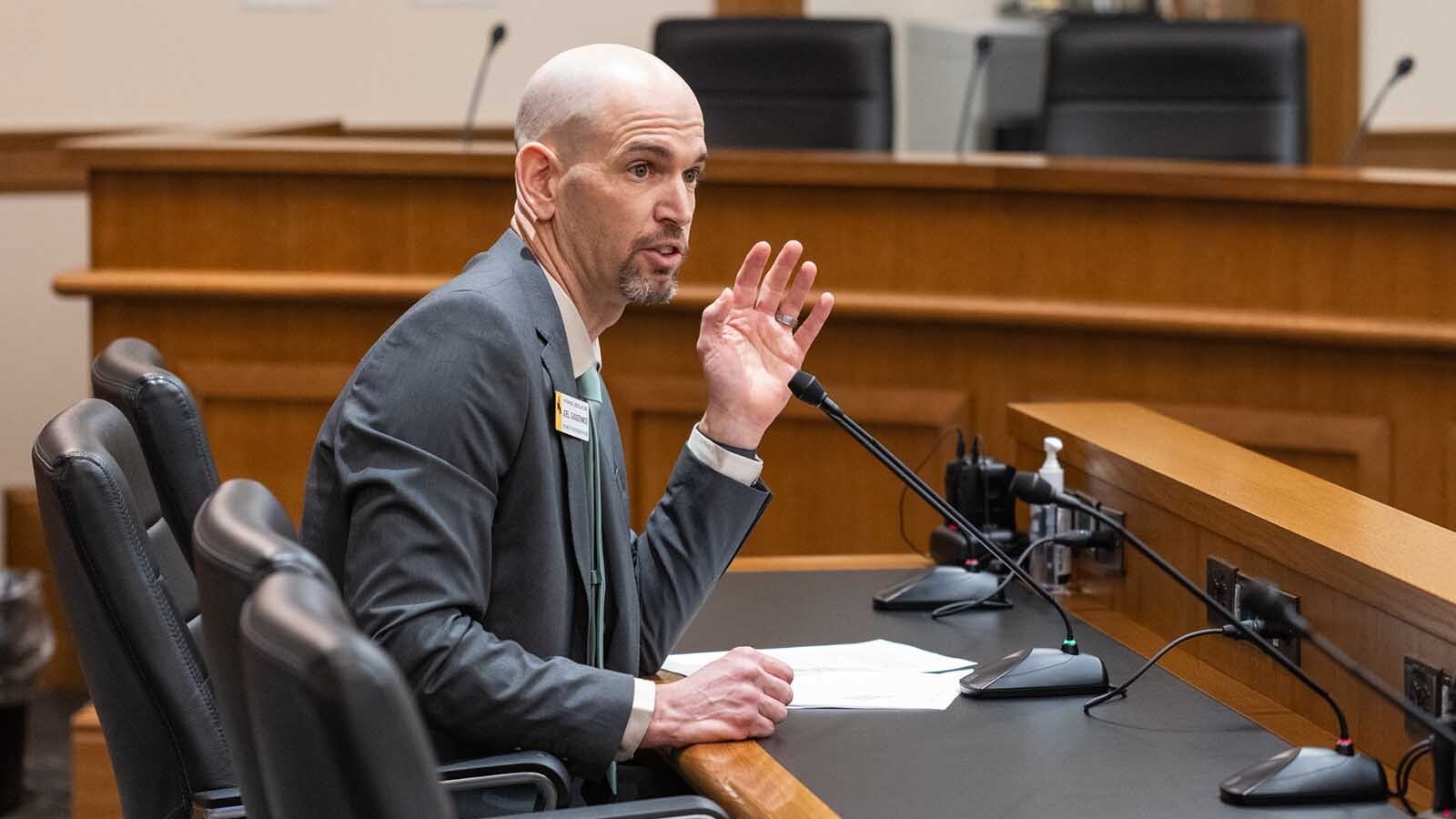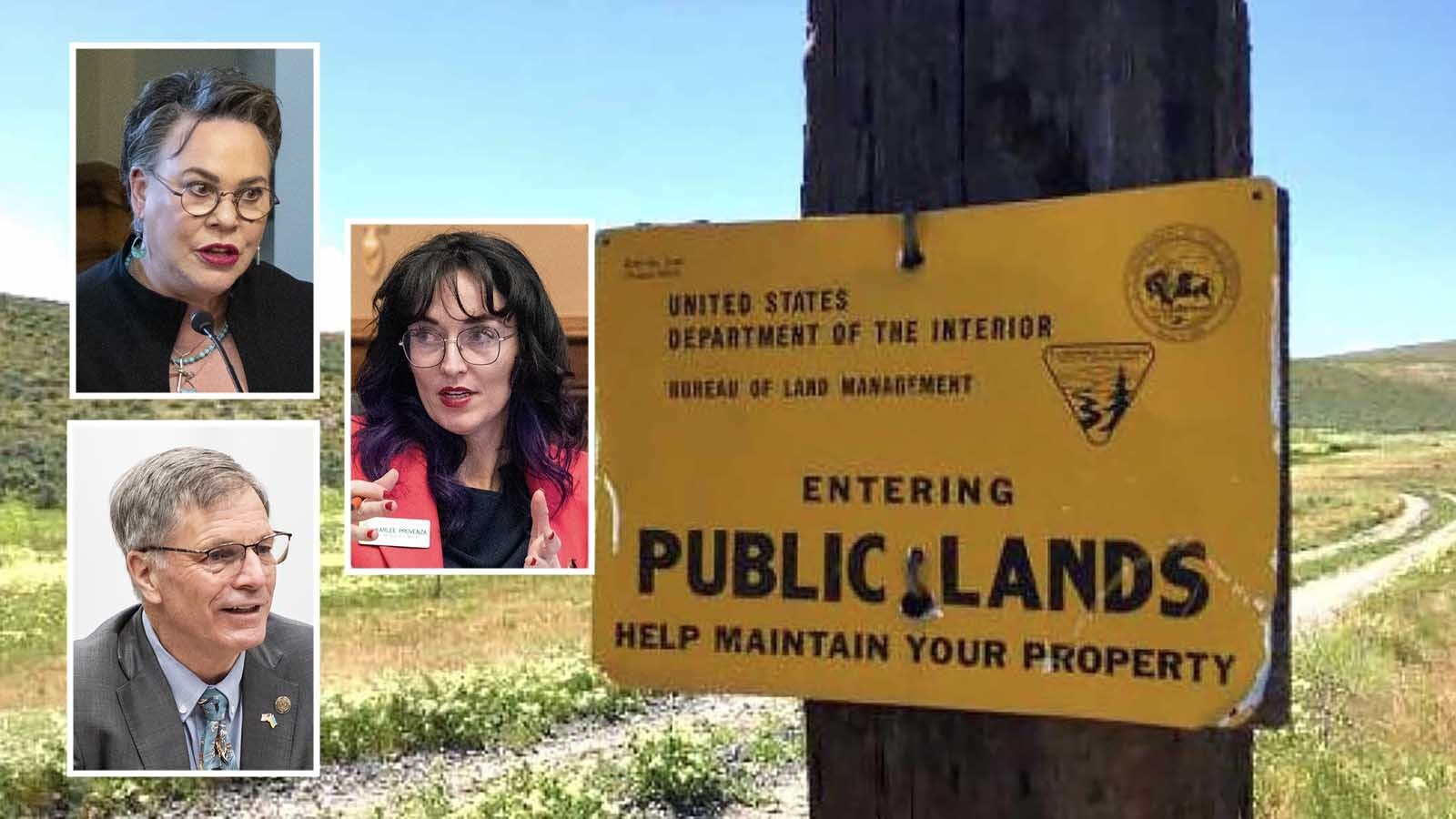Alcohol can be an economic driver, but debate over how increasing its availability can impact Wyoming communities took over the Wyoming Legislature’s Senate Corporations, Elections and Political Subdivisions Committee on Tuesday morning.
The discussion focused in on Senate File 12, which would establish a new category of liquor license in Wyoming, a tavern and entertainment liquor license.
The new license could apply to businesses that provide activities like chicken roping, golf simulators and ax throwing that derive at least 60% of their revenue from food or entertainment.
More Focus Needed
Mike Moser, executive director of the Wyoming State Liquor Association, wants the bill tightened, specifically delineating the types of businesses that could use the license, such as ski resorts and rodeos.
“We would rather have a sniper rifle than a tactical nuke,” he said.
Moser said the legislation would open liquor licenses to anyone who shows creativity in their applications. He also said there is far too much ambiguity of what “entertainment” means, which would be left up to individual communities to determine.
“If you look at the Merriam-Webster (Dictionary) definition of entertainment, it’s completely wide open,” he said.
He also said the license would replace the bar and grill license because it’s basically the same license with more flexibility.
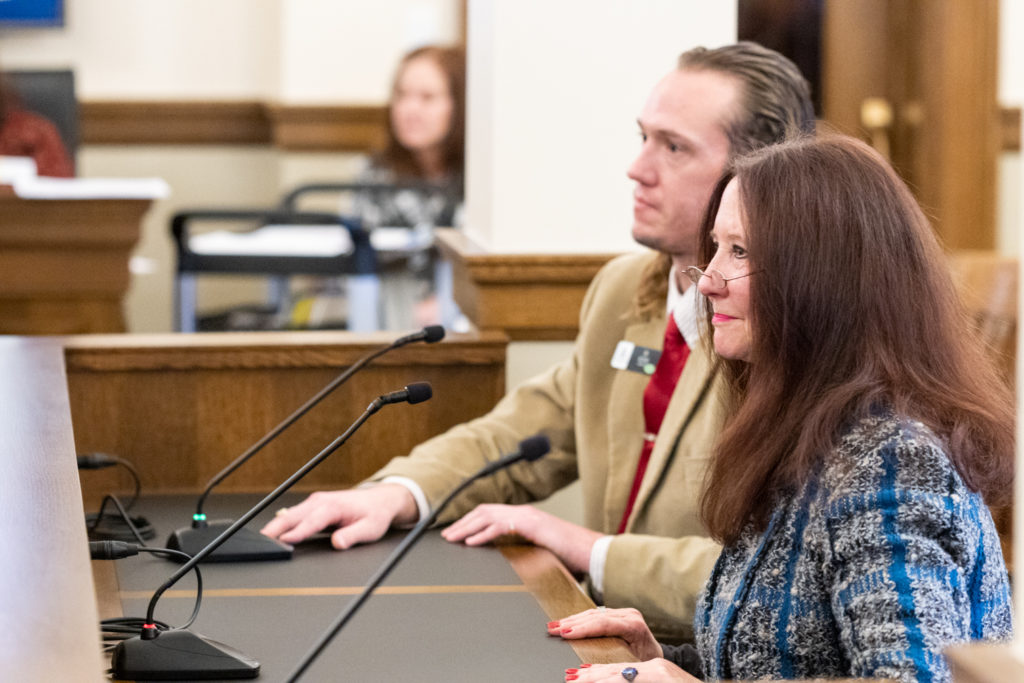
Evolution Of An Existing License?
April Brimmer Kunz, co-owner of a future indoor golf simulator business in Cheyenne and former president of the Wyoming State Senate, has spoken on behalf of the SF 12, titled the Tavern and Entertainment Liquor License at multiple committee meetings over the past year.
This license would run $1,500-$10,500 per year, matching the bar and grill license fees in Wyoming.
The law would go into effect on July 1 and, as currently written, it would be up to individual communities to decide how many licenses they want to award, but Brimmer Kunz argued there should be hard caps on the number.
To serve alcohol at her and her son’s establishment, Ace’s Range, which is set to open in May, they had no other option but to compete with nine other applicants for a single retail liquor license available in Cheyenne.
Ace’s was not chosen.
State Sen. Bill Landen, R-Casper, suggested opening the bar and grill license to incorporated entertainment-based businesses like Ace’s.
Sen. Charles Scott, R-Casper, said liquor license laws have gradually loosened over the more than four decades he has served in the Legislature.
The committee also considered legislation Tuesday increasing the population-based formulas that determine how many bar and grill liquor licenses communities can award.
Scott and other members of the committee discussed the possibility of combining the bills or putting population-based caps on the number of entertainment licenses issued. This would expand the bar and grill liquor license to incorporate entertainment-based businesses.
If incorporated, entertainment-based businesses would be put in within these allotments.
Economic Development
Senate President Ogden Driskill, R-Devils Tower, said there is a real need for entertainment licenses in Wyoming, mentioning how many businesses want to serve families and provide entertainment but have no interest in offering food.
He also mentioned how Dewey’s Place in Moorcroft hosts chicken roping, but can’t let children participate because it happens at a bar.
“Local entertainment – that might be a golf simulator in Cheyenne and a bean toss somewhere else,” he said.
He expressed sympathy with Ace’s Range and said there needs to be a focus on recognizing the desire businesses have to spend money in Wyoming.
“We’re trying to invigorate our towns, but instead we say, ‘Let’s head south to Fort Collins,’” he said.
Brimmer Kunz mentioned examples of a few businesses that had to add commercial kitchens to be able to serve alcohol.
Her son JB Kunz sees the legislation as a matter of economic development and chasing the American dream.
“I think it’s important to retaining Wyoming families in Wyoming,” he said.
‘Already Saturated’
Moser said the liquor license market in Wyoming is already saturated and that there has been a similar number given out here as in all of Colorado.
He also warned against the dangers of alcohol abuse in communities.
“With all due respect, no one is trying to promote alcohol abuse,” Brimmer Kunz said in response to Moser’s testimony.“Nor is the entertainment license designed to promote alcohol abuse.”
Byron Oedekoven, executive director of the Wyoming Association of Sheriffs and Chiefs of Police, said that more than half of arrests in Wyoming are alcohol related. He asked for sensitivity toward local communities when increasing the density of establishments that serve alcohol.
The bar and grill liquor license bill, Senate Bill 13, would, by 2033, eliminate the population formulas used to determine how many bar and grill liquor licenses a community can give out. If passed, it would be up to local municipalities to determine how many such establishments they want in their communities.
Healthy Competition
Landen questioned if increasing licenses correspondingly pushes other businesses out.
“It just feels like we continue to add more and more licenses,” Landen said. “That’s like slicing pieces of pizza. The more and more slices you make, the less pizza there is for all.”
David Fraser, executive director of the Wyoming Association of Municipalities, disagreed, saying the best way to kill a community is to eliminate competition.
“I think existing competition is good for our residents,” he said.
The Corporations Committee on Tuesday also passed a bill allowing communities to increase renewal fees on liquor licenses.
“Basically the value of licenses are what people are willing to pay for it,” Moser said in support of that legislation.

